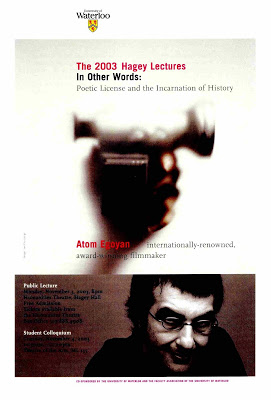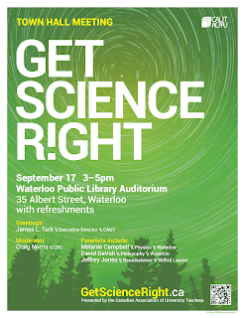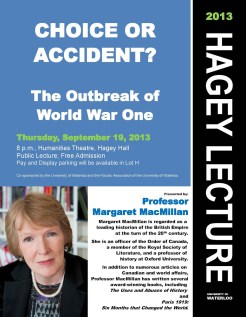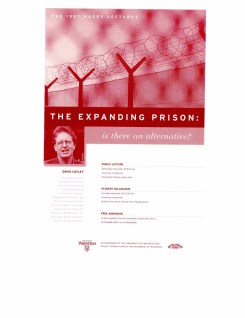– Sally Gunz, FAUW President
This is the last official general meeting report of my term as president of FAUW. Technically, the changeover to Bryan Tolson is on July 1, 2017 but it will actually take place as of September 1 since Bryan is on sabbatical.
At this meeting the names of new FAUW Board members are announced. We had an excellent slate of candidates and all of us on the Board are particularly grateful to the new people willing to offer their services to FAUW. It has been my obsession in my role as president to ensure that FAUW is an association that genuinely seeks new people to join our ranks and, in time, take over key roles. There is also a learning curve to being on the Board so we do need some returnees at each election – terms are only two years and it would be sad to lose people just when they are really hitting their stride in terms of experience. I believe our present and new Board represent a good balance of experience and new voices.
It is tough each year to say goodbye to those people whose terms are done or who did not or could not run again. We have two outstanding Board members who are leaving. Elise Lepage will be a big loss. She has been our main Board person working with Laura McDonald on communications and many of the very valuable improvements to the website, events, and notifications have involved a large amount of Elise’s time. Paul Wehr’s departure will also be a significant loss. Paul is always willing to focus on the detailed elements of our activities that are necessary in order for FAUW to be successful. Paul was also a key part of the success of the Lecturers Committee and we hope he will continue to find the time to participate in that committee’s work.
I want to stress the many other aspects of FAUW where we need strong participation from all of you. Bryan Tolson has worked hard to revive and revitalize the Council of Representatives. If you do not have a person in your department or school routinely reporting about FAUW activities, please contact us to see if you are missing a representative.
There are other key standing committees of FAUW: the Status of Women and Equity Committee, Academic Freedom and Tenure Committee, Lecturers Committee. Please contact any one of us on the Board or our staff to find out how you can become more involved.
I now will summarize some recent events:
- We have been giving you updates on the progress of the review of Policy 42 – Prevention and Response to Sexual Violence. As of the time of writing, we still do not have terms of reference to review. We know that there have been delays because of the limited resources in the Secretariat, but the review was slated to commence in January. David Porreca asked about this at the Board of Governors on Tuesday (April 4) and he was assured things were “imminent.” I hope real progress will have occurred by the time you receive this report.
- We discussed the Course Evaluation Project Team (CEPT) Draft Report at the fall meeting and we used your input as the basis of the FAUW response that you can read on our website. You can see other responses on the CEPT site. There is a good deal of consistency in terms of the key concerns: bias, faulty measures of teaching, etc.
We also are concerned about the assumption that all numeric data will become available to members of the University community by sign-in. This is available now in certain Faculties, but by no means all, and FAUW’s position is that change should be by Faculty vote. We will express our disappointment in the current version of the report that will be going to the provost. If the provost accepts the report, the next stages will be held at Senate, I assume. We will keep you informed as this proceeds.
- On the positive side, there are a number of initiatives that are moving forward well:
- Workshop for newly tenured faculty: newly-tenured and newly-continuing faculty members will be invited to a brand-new FAUW workshop in the fall. The workshop will help newly-tenured and continuing faculty members plan their next career stage.
- Our Memorandum of Agreement revision project continues. This is a really time-consuming and picky exercise. You should be invited to vote soon on proposed changes that are of a somewhat technical nature.
- Mental health: FAUW recognizes that issues with students affect faculty members directly, and indeed that many of our members struggle or have struggled with mental illness. We plan to conduct an event in the fall, the exact nature of which is still taking shape. We also continue to work directly with members, Occupational Health, the Employee and Family Assistance Program Committee, Healthy Workplace Committee, and the Pension and Benefits Committee to ensure appropriate support and care are available to our members.
- In November we will be hosting an event in celebration of FAUW’s 60th anniversary. More on this to come.
- Communications: you should now be aware of many of the wonderful initiatives spearheaded by Laura McDonald, Elise Lepage and others. This is far more than the logo though we are proud to see that on the banner, letterhead etc. Our social media presence continues to improve and we are always open to further suggestions. We have a “FAUW Five” initiative that disseminates information through the Council of Representatives. The Status of Women and Equity Committee also has a fine equity newsletter.
- For those of you who attended the Hagey Lecture, you will know of its success. Planning is already underway for the next lecture. Jasmin Habib has come to the end of her term as chair and these are big shoes to fill. Watch out for information about showing your interest in being considered as a member for the committee if you are in one of the Faculties where new representatives are required: Arts and Math. This is a premier event for the University and our committee comprises outstanding representatives from each Faculty appointed by the provost and myself.
- We continue to work on ways to engage new members. We recently repeated our drop-in sessions and are planning fall events.
- It is lead-up time to salary negotiations – that will be a major preoccupation for 2017–18.
- We continue to work with others on the ongoing policy review processes. There is some semblance of light I believe I can see at the end of the Policy 33 – Ethical Behavior and Policy 76 – Faculty Appointments tunnels and you will be fully informed in due course.
- We remain closely involved in OCUFA and CAUT events. Some of the latter events had to be canceled because of labour issues amongst CAUT staff, but it is our understanding that these are now over. I will be attending the CAUT Council in May in Ottawa.
In sum, our plate is very full. There are so many more things we could and should be doing. We have outstanding staff. We have really committed Board members. We can always do with more volunteers. If yo
u are interested in offering your services or have good suggestions for how we can do better, please speak up. This is your association and it will be successful only if it represents what our members expect of us.
And finally a couple of “formal” personal comments. I have very much enjoyed my two years as president. I look forward to a quieter life, but that is no reflection of the genuine pleasure I have experienced while serving my term. Our staff and Board are all, to a person, fun, interesting, committed, smart, and hard-working people. I think all of us look forward to being together at our bi-weekly meetings. The members I meet through other events and committees are equally committed, compassionate and dedicated.





